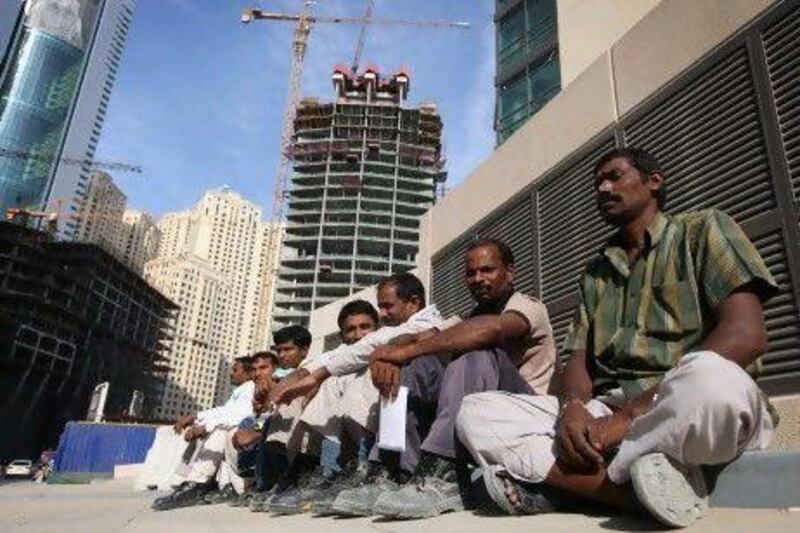"My cousin Dhwani has been in Dubai for two years. He says conditions are not ideal and he wants to come back. But to what? To unemployment? Uncertainty? He is totally unprotected," says Gautam Srivastava, a shopkeeper from the state of Maharashtra.
India Dispatch Inside the emerging giant
Keep pace with developing events in the BRICS economy Learn more
His story has an all-too-familiar ring. Many Indians working abroad are unhappy toiling long hours, spending months away from their families. They want to return but often have nothing to come back to.
The Indian community abroad is a large contributor to India's economy because of the cash it sends back in remittances. Now the government wants to show it appreciates the effort with a support scheme for people such as Dhwani. The aim is to provide insurance, pension - even resettlement expenses - for those returning after a stint overseas.
"When the migrant worker returns to India, he is older and he has to start economic activity to support himself and his family… To support the workers, we have decided to launch the scheme," said Vayalar Ravi, the overseas affairs minister, as quoted by The Economic Times of India last Thursday.
The World Bank says remittances from Indians abroad increased from US$21 billion (Dh77.13bn) in 2003 to $55bn last year, the highest remittance figure in the world. Kerala and Punjab were the top two recipient states.
But it is not just money that is coming. India also has the highest number of returning migrants. Mr Ravi said he was especially worried about people coming back from the Gulf.
"Their total number is over 7.5 million. They migrate for economic reasons and send back remittances. We will have to support them on their return," he said.
Nehal Sanghavi, the diaspora liaison officer at the think tank Gateway House, says the government's initiative has not come a moment too soon. "There isn't any help available for those who need it most - the informal sector workers," he says. "It's a disgrace, and the government should do a better job. At least they have started to recognise there are problems, but it leaves many of our citizens unprotected when they come back."
Workers' rights also need to be protected, he says.
"There are certain basic human rights that workers should be entitled to. Maybe a bilateral agreement that sets out specific conditions in detail could prevent abuses," he says.
Mr Srivastava, the Maharashtra shopkeeper, laments the difficulties that expatriate Indian workers face. "Every family knows someone who is unhappy in the Gulf. Whether it's wages not being paid or security issues at a building site. But they are stuck because the economic situation back home is bad," he says.
He is sceptical about the proposed system of assistance for returning workers.
"I doubt the money will be enough to help an entire family," he says. "What my cousin needs is a job so that he can come back to support his family. They should do something about that."
In addition to the support scheme for returnees, Mr Ravi, the overseas affairs minister, also says the government is planning to unveil an internet-based certification system of employment contracts for Indian workers in the UAE.
"In order to overcome this problem, we are initiating with the UAE Ministry of Labour a Web-based attestation system of employment contracts in the Indian missions at Abu Dhabi and Dubai. This procedure would help us enforce the contracts conditions,"The Economic Times quoted Mr Ravi as saying.
"We have directed the Indian missions in other countries of the region to establish similar process to attest the employment contracts," he said.





